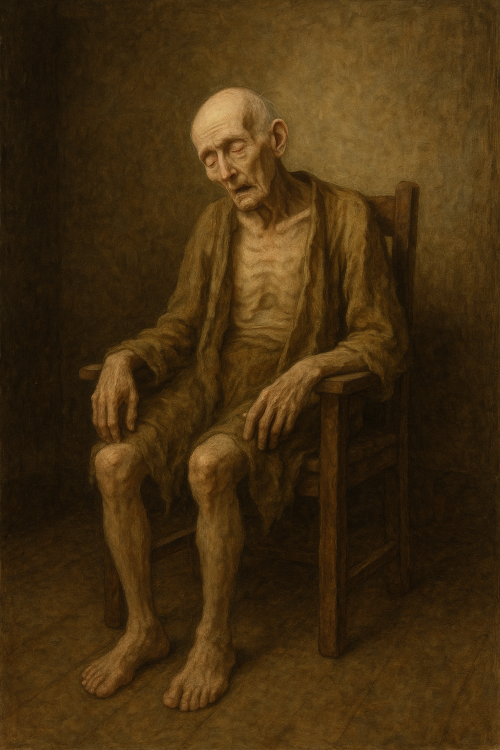I’m not a Shakespeare geek or anything, but from what I understand, he’s done a few things of note.
Two passages in particular come to mind today. They both end with such a punch.
From As You Like it:
All the world’s a stage,
And all the men and women merely players;
They have their exits and their entrances;
And one man in his time plays many parts,
His acts being seven ages. At first the infant,
Mewling and puking in the nurse’s arms;
And then the whining school-boy, with his satchel
And shining morning face, creeping like snail
Unwillingly to school. And then the lover,
Sighing like furnace, with a woeful ballad
Made to his mistress’ eyebrow. Then a soldier,
Full of strange oaths, and bearded like the pard,
Jealous in honour, sudden and quick in quarrel,
Seeking the bubble reputation
Even in the cannon’s mouth. And then the justice,
In fair round belly with good capon lin’d,
With eyes severe and beard of formal cut,
Full of wise saws and modern instances;
And so he plays his part. The sixth age shifts
Into the lean and slipper’d pantaloon,
With spectacles on nose and pouch on side;
His youthful hose, well sav’d, a world too wide
For his shrunk shank; and his big manly voice,
Turning again toward childish treble, pipes
And whistles in his sound. Last scene of all,
That ends this strange eventful history,
Is second childishness and mere oblivion;
Sans teeth, sans eyes, sans taste, sans everything.
Wow. If that isn’t a sock in the gut to us old guys, what is? The sixth age, where a man becomes less useful to the world and falls into the familiar ravings against “kids these days.” The world becomes too big for him and his voice weakens, both physically and in its power to say anything meaningful to the younger set until finally it fades altogether into a feeble shadow of what it once was. And then, the last scene of all – if one were to make it this far – a weak and helpless child, with nothing left to offer the world.

Or how about this famous passage from Macbeth:
Tomorrow, and tomorrow, and tomorrow,
Creeps in this petty pace from day to day,
To the last syllable of recorded time;
And all our yesterdays have lighted fools
The way to dusty death. Out, out, brief candle!
Life’s but a walking shadow, a poor player,
That struts and frets his hour upon the stage,
And then is heard no more. It is a tale
Told by an idiot, full of sound and fury,
Signifying nothing.
When I was much younger, I’d memorized this. Odd how it’s coming back to remind me these days that life is really just “a tale told by an idiot, full of sound and fury, signifying nothing.”
Shakespeare must certainly have been a fan of Solomon’s work in Ecclesiastes. “Vanity of vanities! All is vanity.” But Solomon ends so much better than Shakespeare:
“The words of the wise are like goads, and like nails firmly fixed are the collected sayings; they are given by one Shepherd. My son, beware of anything beyond these. Of making many books there is no end, and much study is a weariness of the flesh.
The end of the matter; all has been heard. Fear God and keep his commandments, for this is the whole duty of man. For God will bring every deed into judgment, with every secret thing, whether good or evil.”
The only way life truly has meaning is if the story that God has written for us is true; and this story culminates in the death and resurrection of Jesus being the impetus of the great exchange – that he who knew no sin was made sin for our sake, “so that in him we might become the righteousness of God.”
Without it, Shakespeare is right. ”Sans teeth, sans eyes, sans taste, sans everything.”
